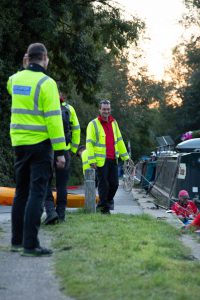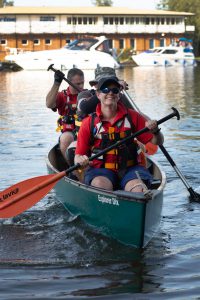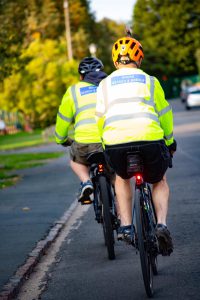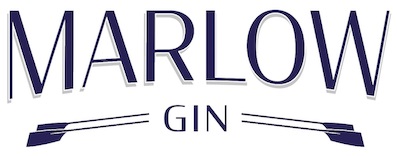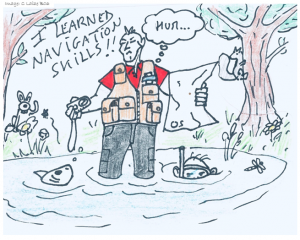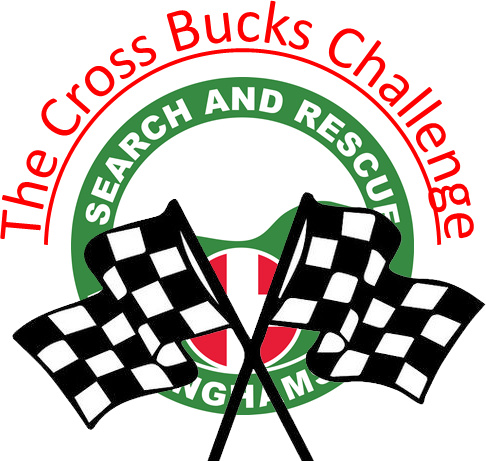
Category: News

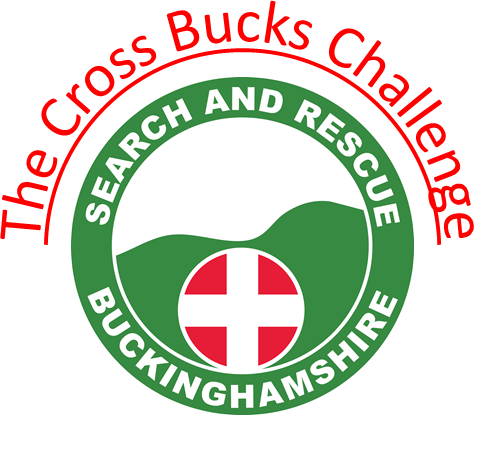
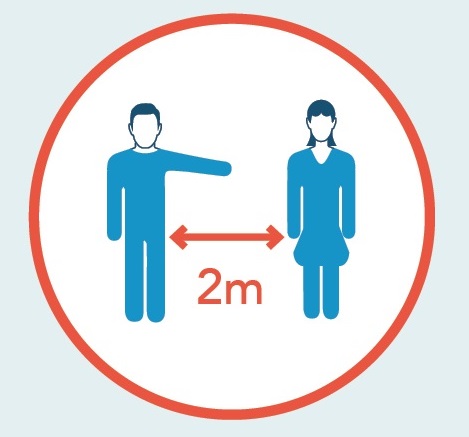
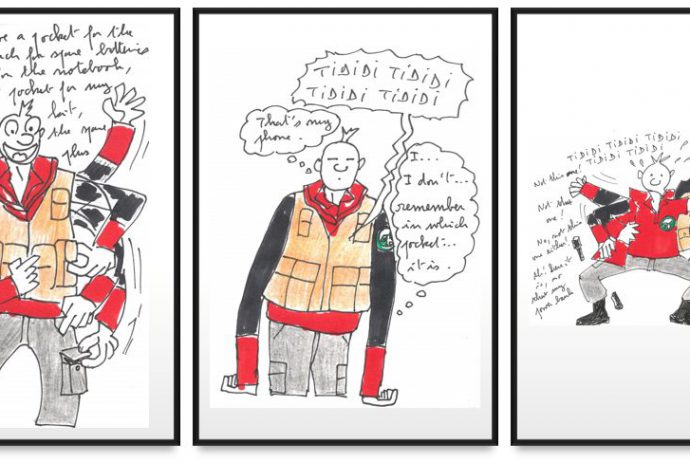
Insights from a Bucks Search Tech Episode 6
Episode 6 – ‘That impactful moment…’
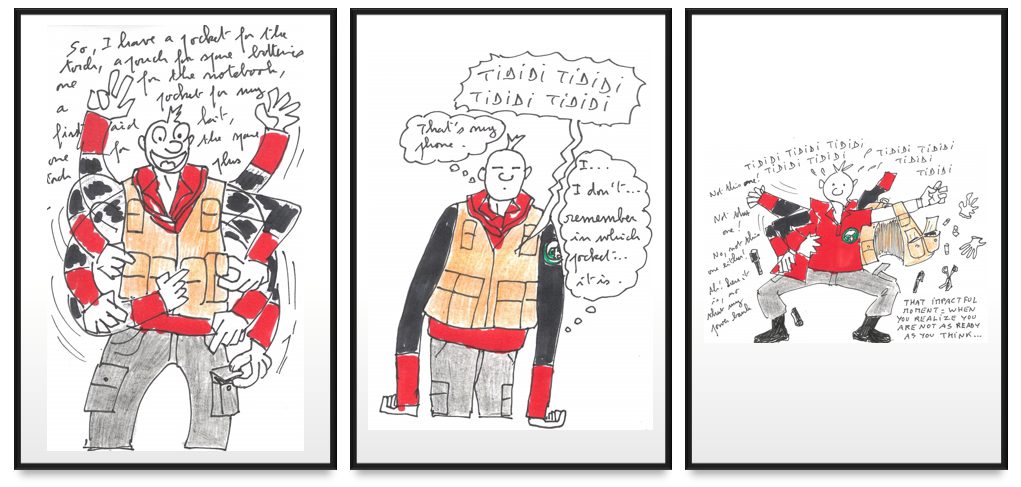
‘…might not be what you were expecting!’
It certainly wasn’t what some of us were expecting. As this series has progressed, more and more of the team are sharing their experiences, and it has proven to be quite thought provoking. When we started this journey of ‘Insights’, we pencilled in the ‘Impactful Moment’ as the final episode. It seems that we all thought it might touch on the moment we find a missing person, but nobody said it out loud. We know that this is an impactful moment, but it didn’t seem right to express it in this form, it is managed slightly differently by each person. However, over the weeks, with the activities and experiences we have been through and the process of thinking about what impacts us, we have come to realise that the impactful moments we experience can sometimes be things we didn’t expect to be impactful. So not wanting to disappoint you, this episode uncovers the ‘other’ impactful moments, that we didn’t even realise would happen.
As a Search Tech you train, you learn, you prepare, you go on auto-pilot and into operational process when needed. So everything is going to plan, and then, WOW! Something happens that you just didn’t expect. We’ve seen it can be good or bad, it doesn’t have to be significant or dramatic, it can be something quite small, but by virtue of it’s unexpected nature it can be impactful. It’s something that leaves an impression on you, it can come from any of your senses, so a feeling, a sound or a sight.
When you are not as ready as you think!…
As Search Techs we carry kit, lots of kit, in lots of pockets and pouches. We have specialised kit for different searches. We plan and prepare to be self-sufficient for an 8hour shift and are trained to cope with the elements. It can be something seemingly quite simple, as not being able to locate a torch, spare batteries, the line cutter when it’s needed that can throw you off balance. Being in a location dealing with a situation and having your supplies elsewhere. It’s believing you are ready, and then getting caught out. We learn from these types of experiences, on every call-out and every training session, and we spend our time adapting our kit to make us more efficient and comfortable in knowing that we are ready.
When you look, but don’t expect to find…
So it’s 3am, you’ve just finished searching a cemetery and you’ve moved into the woods. It’s pitch black, you’re crouching down peering into a dark hedge with your torch full blast only to have 3 pairs of eyes staring back at you. Now that’s impactful. Even though you’re looking, you don’t expect to see. They were foxes thankfully, but that experience leaves an impression.
When your impacted by realising how lucky you are to be part of a team…
It’s in challenging times we rely on the strength of the team and this has been flagged as another impactful moment, when you realise that you are surrounded by a group of people who have your back and are there to support you. For some this realisation of how well the team works is really impactful, and had lasting and positive consequences. It makes us stronger as a unit.
When what you do makes an impact…
For others it’s the realisation that every time we go out we make an impact, it’s the realisation of the value we bring. On a personal element that’s impactful. It can change a person’s view of themselves and give them self-worth and confidence.
We hope that this series of ‘Insights from a Bucks Search Tech’ may have helped you to understand a bit more about who we are, what we do and why. It has certainly helped some of us to express our thoughts and feelings and understand them a bit more. If you take nothing else from them, please appreciate that in Buckinghamshire, as in every county, there is a team of volunteers on call 24×7, ready to respond to assist the police in the search for a missing person and reunite them with their loved ones. We do what we can with the resources we have. As with any charity we only remain operational with the amazing support, grants and donations we get from the public, so we thank you for that.
Signing off for now, knowing we’ve made an impact, your Bucks Search & Rescue Team.
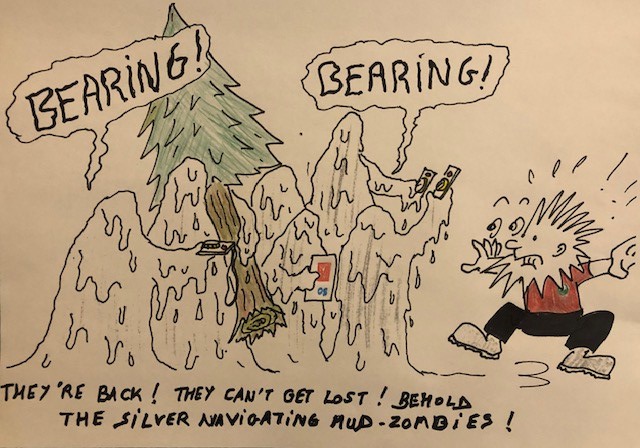
Insights from a Bucks Search Tech Episode 5
Episode 5 – ‘You’re qualified as a Search Technician, so what’s next?’

Having made it through the basic training and become operational, were we ready for more? Well after a few months apparently so. For some of us our professional day jobs led us to the area of specialisation, for others it was areas that had sparked interest, for some it was when they asked people to step forward to volunteer they just didn’t step back quick enough.
As a new recruit I remember the 1st navigation training session, thankfully it was theory, in our HQ so I wasn’t going to get too lost. But to have a compass and a map and try and make something of them both, it was going to be a challenge to say the least. A couple of hours in and I still couldn’t work out why or how these 2 things worked together. After weeks of practice, hours of walking, staring at maps, learning OS symbols, turning compass bezels round and round until they made sense, taking bearings and using tech tools to confirm your thinking, it finally all started to make sense. But this was still basic navigation at Bronze level. The learning that you are never lost, you just might not be where you thought you were was comforting. Now with a map and compass at least I could work out where I actually was and start from there. I hadn’t quite appreciated that the navigation role in a Search and Rescue team was as key as it was. I had imagined the nav person got the team to an area, kept an eye on the tracks and got them back. The reality is that the team need to rely ‘nav’ to record the searches, points of interest, give coordinates and plan routes in and out for support teams and emergency services when required. So to have the confidence to take on that responsibility on a search does give you a massive sense of achievement. 10 months on from that 1st nav session a group of us went off and got our NNAS Silver Navigation Award. We didn’t get lost that’s for sure. We did however get swamped in mud in the process, but we came out the other side with more confidence in our advanced navigation skills.
Navigation is just one example, for others in the team it’s advanced medical training as Lowland Rescue First Responders, or Team Leaders, Drone Pilots, Boat or Water safety crew.
Does it stop there? Not a chance, once we become proficient in our new skills we will continue to learn. The time and effort put in by every volunteer to extend their knowledge and skillset results in the team being able to expand it’s capabilities.
In this way we can make sure that as your Bucks Search and Rescue team we are always ready to respond with the right level of resources and skills, as quick as possible to help in the search for a missing vulnerable person.
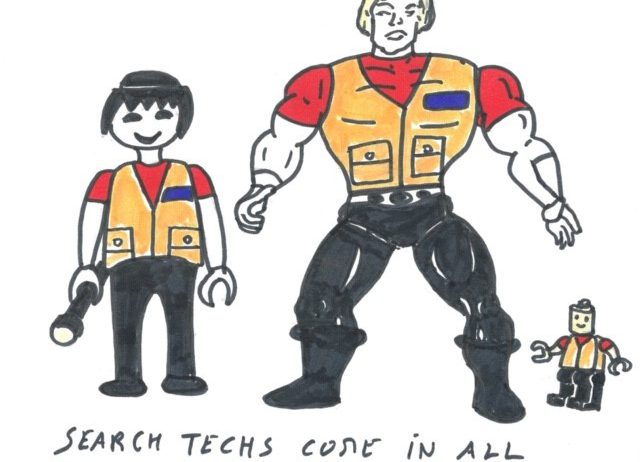
Insights from a Bucks Search Tech Episode 4
Episode 4 – ‘First impressions from the newbies of 2020’
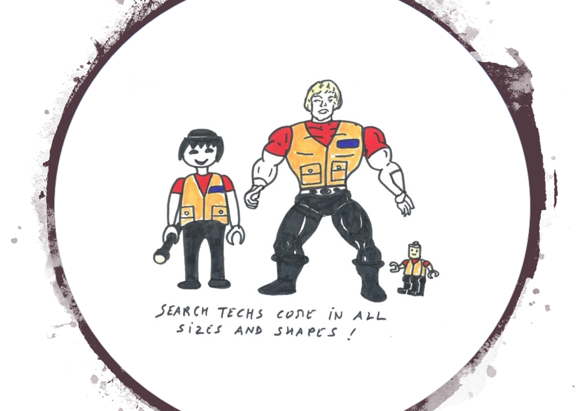
Our journey started at an Open Evening Oct 2019 – “WOW so much we hadn’t appreciated before”:
Some of the things we quickly learned:
- Much of the UK search and rescue capability is charitably funded and staffed by volunteers.
- From hill to high water – “You’ve heard of Mountain Rescue, and the Coastguard and RNLI ? Lowland Rescue is responsible for everything in between.”
- There are nearly 40 lowland rescue teams nationally, Bucks Search & Rescue (BSAR) is one.
- The training commitment, both to join and to continue, is understandably quite demanding but by no means impossible (better hope we pass …).
- “We search at the pace of the slowest member of the team” – Ooops…
- The team is made up of a real cross section of people, all ages and backgrounds. Search Techs really do come in all shapes and sizes.
- No-one gets paid, no-one can claim expenses, the team buys most of its own personal kit, and it aims to operate 24/7 in all weathers. That is really quite humbling.
Induction day arrives – February 2020.
Finally the day arrives, when we get to see the reality of what we have signed up for. A tremendous amount of effort went into staffing and properly structuring the induction day for potential new members, and we learned a lot. We covered a lot of ground, literally and metaphorically.
Operational members of the team who were not instructing freely gave up their time to ferry people around or volunteer as missing persons to make the exercises more realistic.
Importantly we learnt that sometimes you search to show where people are not, so that areas can be eliminated or de-prioritised, but nowhere is counted as properly searched unless it has been searched three times. Who knew?
One month into Training, and we are still here, still smiling, and still enthusiastic.
We are getting used to learning and tackling completely new things, especially those of us at a certain age. It is sometimes an odd feeling being useless at something and then practising until we get better (hoping we do). But as we keep telling ourselves, better that than being over-confident and messing up. Everyone supports each other to get through the training.
There is a fair amount to take in over a relatively compressed period of time but none of it is rocket science, and everyone seems to be very patient.
So far, we have learned about radio communications and protocols, different types of searching (it is definitely not like it looks on the telly), safety when searching, particularly around water, and casualty evacuation.
Taking a structured approach to each task and a blended approach to teaching it, mixing e-learning with the practical, is a really sensible way to do it.
We are some way away from doing any of this stuff instinctively but then a month ago we didn’t even know it existed as a methodical approach.
Reflections at this stage.
Some of the recruits in our intake have a lot more experience than others, but so far it hasn’t really mattered. Training from scratch at least means everyone is learning the same methods and approach.
We are amazed at the commitment of the people on the team, who hold down full-time jobs and have family commitments, but they seem to downplay it, it is normal for them.
There is a manageable minimum commitment in terms of searches and training once operational and an emphasis on not having to explain why a search cannot be attended, it is what it is.
Ask us again how we feel in a couple of months once we have completed training and been assessed as to whether we can become operational. Though best give us some space if we don’t pass the assessment.
We’ll let you know how we feel after our first search, when we become operational Bucks Search and Rescue Technicians. Until then, be patient with us, we are this year’s “BSAR newbies”.
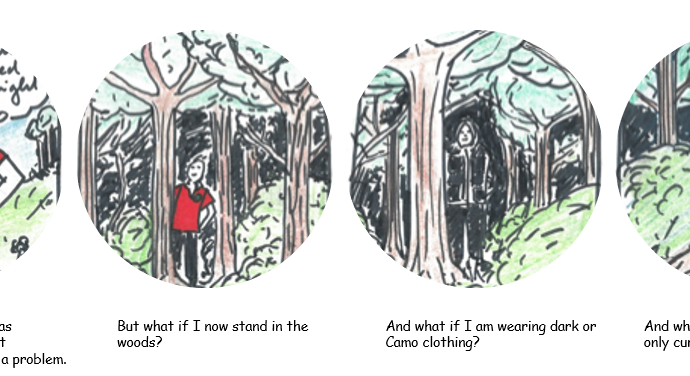
Insights from a Bucks Search Tech Episode 3
Episode 3 – ‘What I didn’t realise when I Joined Bucks Search and Rescue’
Was it that I hadn’t realised, or maybe it had never even crossed my mind, but some of these things really came as a shock, and in speaking to the team I wasn’t alone.
I hadn’t realised …
How many other people hadn’t heard of Search & Rescue. Now when I tell people about Lowland Rescue, and our Search & Rescue team I start the conversation with…”So you’ve heard of Mountain Rescue? You’ve heard of RNLI? Well we cover that big bit in between them. We cover from hill to high water, we are Lowland Rescue.”
The difference between us and Mountain Rescue. Well apart from the obvious, I know we are a little limited for mountains in Buckinghamshire, but in comparing us to these other groups that are more well known by the public, if you think about why and how we operate, we are significantly different. Generally Mountain Rescue teams are called out for lost or injured people who don’t intend to get into difficulty. They spend less time searching, but are involved in more complex rescues and extractions. Lowland Rescue on the other hand are called in to search for missing vulnerable people who, in some cases, either don’t want to be found or, don’t even realise they are lost. Sometimes it feels like a game of hide and seek.
There was a search methodology, a set of processes and search techniques to learn. These are the things that make the difference in sending in experienced Search Technicians rather than members of the public. This is what makes us efficient and effective. We don’t get an exact point to find missing people, we may get the last known place they were seen. Search & Rescue Teams use a proven methodology to plan and run searches that places the teams in the most probable area, to make a find in the quickest time possible. I hadn’t realised it would be so hard to find our missing people sometimes.
How much of area we cover. My discovery since joining is that Buckinghamshire is a long county. It takes over an hour, without traffic to travel from south to north. Like all Search & Rescue teams we also assist our neighbouring teams. Our neighbours include: Berkshire, Oxfordshire, London, Northamptonshire, and our Mid-shires team covering Bedfordshire and Hertfordshire. That’s a lot of ground to cover, a long way to travel even before your search begins.
How many call-outs there would be. I hadn’t known, understood or appreciated just how many people go missing, and for what reasons. I had not been exposed to the extent of, or volume of individuals impacted by mental health issues. In 2019 our team dealt with over 80 calls and spent in excess of 1500 hours actively searching.
How important closure is for families. I have always heard about “closure”, but it is only now I know the true value of this word. I now realise how much comfort this can bring even in the darkest hours.
What I also hadn’t realised was that working with a team of individuals in a volunteer group, you get people doing what they do, for the right reasons. They are not in it for themselves. They are not in it for any financial rewards. They are not all searchers, some play important ‘back office’ roles. They are in it to serve their communities and help others in need, and in return get a massive amount of satisfaction to know they have made a difference. They are your Bucks Search and Rescue Team.
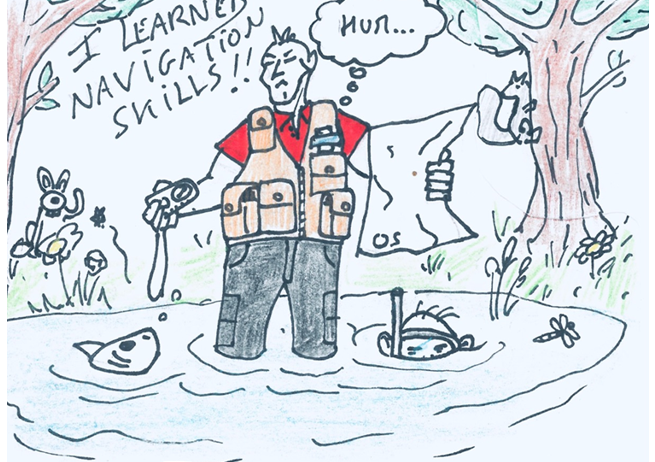
Insights from a Bucks Search Tech Episode 2
Episode 2 – ‘What I’ve learnt and achieved since Joining Search and Rescue’
You can learn to do anything, your level of achievement however is down to 3 elements, effort, skill and courage.
Effort – It really is up to you. You only get out of it what you put into it.
Skill – I could list out all the skills that I’ve learnt in my time in Search and Rescue, and it’s a long list. It includes things that to be honest I never thought I would ever master when I first joined, like using a compass and map, the radio comms, helming a rib. We learnt ‘Lost Person Behaviour’, what I have learnt since is that our missing people haven’t read the book, they don’t all stick to script, so you have to be prepared for anything.
Skill development comes from practice, honing those skills over, and over again until they become the natural reaction in any situation. This routine is what we then default to in stressful times. It also inspires self-control and fosters confidence within us.
Search and Rescue gives you far more than just the opportunity to learn new skills. It gives you the opportunity to learn about yourself and your emotional awareness. It taught me that it was okay to step out of my comfort zone, to challenge my courage.
Courage – Shortly after joining I had an opportunity to be a missing person ‘MISPER’ in a search exercise. Being alone in the woods for just over 90 mins, how hard could it be? After 30mins I felt lost, my confidence left me, after a while things started to spiral out of control. I came out of the woods shivering. At the time I believed I was just cold. It was not until afterwards I realised it was fear. I was petrified in there. It was at this point I learnt to have the courage to face my fear and make the decision to overcome it. I realise for some this is not easy. I had locked it away in the back of my mind for years, almost in denial. The difference now was the realisation that I had a choice; with new skills I had more confidence; with the right support I had an element of comfort in doing something about it. My fear was ‘the woods’, you’d have to question my judgement in joining a Search and Rescue team, or was this what drove me to join? I am now totally comfortable in this environment, for me this is a massive achievement.
I’ve learnt to ditch the guilt and put myself first. Only if I am at my best can I then help others. Through experience I’ve learnt what works for me and what doesn’t. The more prepared and organised I am, less stress I have running out the door and the more I can concentrate on the job in hand. Through practice and repetition, we can learn discipline, regime or routine, I now have a routine in place after a call out. After that coffee when I get in, whatever time of the day or night, I make sure I prep my kit ready to go back out again.
I’ve learnt to reassess my sense of failure. Early on if I had been on a search and completed my area with no find, I felt I had failed. Truth is the value that this brought to the team was to confirm that the missing person was not in that area, and therefore they could eliminate it, and narrow down the areas of focus. I have also learnt that it is okay to ask for advice or help, and to accept that the diversity of the team is actually one of it’s strengths.
And finally, I’ve learnt to:
- Trust my judgement
- Take actions when they matter most
- Don’t get lost if it all goes wrong
- Talk to people about your feelings and emotions
- Do something rather than nothing
- Believe I can make a difference
A HUGE thank you to all in Search and Rescue for providing these opportunities and being so supportive as we learn to get through them.
Bucks Search and Rescue
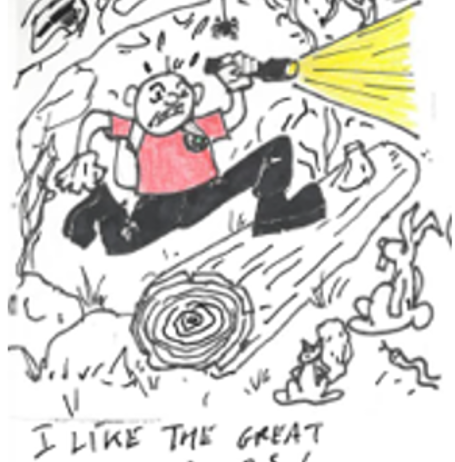
‘Insights from a Bucks Search Tech’
Episode 1 – ‘Why I do what I do’
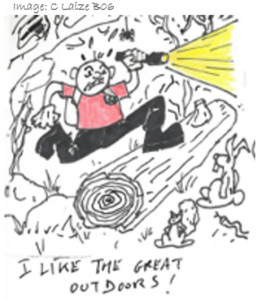
‘Why do I do what I do?’ sounds like a really simple question to answer doesn’t it? Well believe me I have been asking myself this question for the last few months and I am only now at the point of understanding my real reasons for doing what I do with Bucks Search & Rescue. This piece won’t directly answer that question, but it will hopefully trigger thoughts and considerations in people, and that might lead to a better understanding of what drives a Search Tech to do what they do.
When I first joined the team, my response to that question was to tell people I was trying to fill the gap where once I spent every spare minute coaching soccer. Now I’m operational and having experienced the reality of being there when someone needs help, that response doesn’t seem to explain it properly anymore. This led me to believe that there was something else driving me to do what I do every time a call-out comes, and the natural reactions and emotions that are triggered along with it. I wondered if I was the only one who did not know what this need or reason was. Well, a few months later I find I was not the only one, but I might have been the only one admitting to wondering why.
I guess when you’re out in the middle of the night, in-between completing one search area and being assigned the next one, the cold, the dark and the tiredness leave us a little exposed, and the hard shell of a Search Tech can sometimes soften and we reach out for a little comfort, or some form of affirmation of our thoughts and beliefs. What follows when these conversations start can lead to some of the most enlightening and unexpected moments for all involved. As I thought most people realise and acknowledge why they joined the team, but trying to explain why they do what they do now, what really drives them to respond to call-out’s was not something they had even thought about.
It’s true, everyone has a story, even if they don’t think they do, or more commonly if you don’t think they could have. In some cases these stories, some recent, some personal, some going right back to childhood were the driving force behind us doing what we do. For some these chats were the first time the reasons had been considered, realised, or understood. It became obvious to me that the original reason for joining was different to their reason for doing what they do now they are operational.
There is some commonality in the reasons given as to why we joined the team. Most talk about wanting something else, needing a challenge, a way to give back to their community, some needing an escape from work, for some it’s the outdoors that attracts them, some needing to get head space, for others it’s been a direct result of being personally affected, or being helped by a Search and Rescue team in the past. There seems to be less commonality when it comes to what drives us to respond to the calls in the way we do, in fact that seems to be a much more deep-set reason, and as unique as each and everyone of us.
By the nature of our call-out’s they don’t follow any calendar, or schedule, they come through at any time of the day or night, in the wind or rain, on a Sunday or Bank Holiday. The next time you see one of the Search and Rescue teams going out on a call, just take a couple of moments to remember that each of those volunteers has a story, a reason for being there and doing what they do. They don’t all talk about it, I am sure some are not even aware, and some are in denial, but as long this incredible bunch of volunteers come together to reunite a vulnerable person with their family, you can be sure they do it for all the right reasons. They are part of the Lowland Rescue family, they are Search Techs.
As a Search Tech I know why I joined, and I now know why I do what I do every time a call goes out, and that understanding satisfies something in me that no paid role ever could. “In finding you, I found me” thank you.
Bucks Search and Rescue Tech
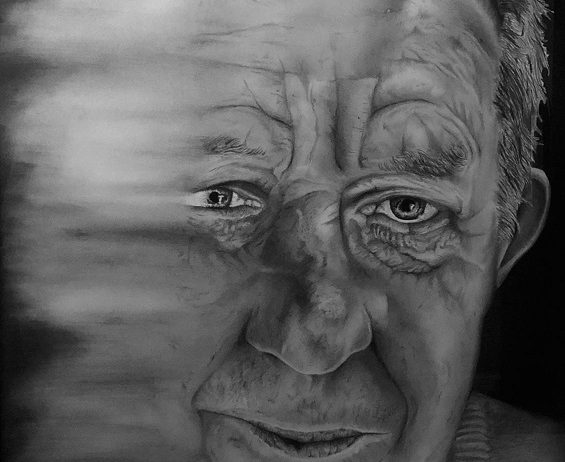
Dementia Action Week
BSAR CALLOUT: Missing person with Dementia
Who is available?
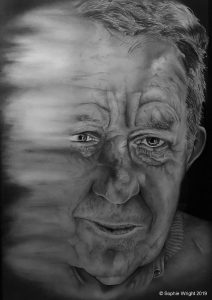
In the UK 1 in 3 people will develop Dementia.
When we receive a call out for a missing person we can never know what expect.
In most cases all we know initially is that the police have deemed the person vulnerable and high risk and require our search and rescue skills to help locate them. When we arrive at a search the information available regarding their age, illness and circumstance surrounding their disappearance is a vital tool to help us plan our search and act accordingly.
Dementia is one of the five groups of missing people that we search for. When we search for someone with Dementia we have a wealth of knowledge including statistics and past searches to utilise, however no two persons with Dementia are the same.
Dementia is a cruel disease that affects the brain, usually in elderly patients, leading to memory loss, change in mood and judgement, lack of understanding, movement and general difficulties in life.
From a Search and Rescue point of view, looking for someone with Dementia can prove to be very challenging due to their thought process, how they respond to obstacles and their confused state of mind. Those with Dementia experience tunnel vision, often moving straight ahead until there is a physical barrier or they are unable to carry on. If they do turn they are more likely to follow their dominant side e.g turning right if they are right handed. Many are unaware they are lost and won’t realise they are in danger. This puts them at a higher risk, as being more senior in years, they are more susceptible to slips/trips, hypothermia and infection so its very important for the team to identify these factors when out searching. Statistics like these are vital to help us search effectively. Our motivation and drive to find a missing person comes from the knowledge that there is a loved one waiting for a father, mother, grandparent or partner to return home safely and we will do everything we can to ensure a happy conclusion.
Why do people with Dementia go missing?
Six in ten patients with Dementia will wander. It can happen at any stage of the disease and there are many reasons including memory loss, confusion, stress, boredom or following past routines. Certain strategies can prevent wandering; providing supervision, identifying likely times of day that wandering might occur, carrying out daily activities and distractions. Reassurance can help the person when they are feeling confused and disoriented. If someone does go missing ask friends/family and neighbours to call if they see the person and call 999.
Why is Dementia Action Week so important?
This week encourages people to start to understand about the effects of Dementia both for those who directly suffer and those around them such close family members and how it impacts all of their lives. This week also asks people to start to a conversation with someone who has Dementia and The Alzheimer’s Society Website has got tips and advice on how to get the conversation started.
Visit the Alzheimer’s Society Website or call the National Dementia Helpline on 0300 222 1122 for more advice and information.
Bucks Search and Rescue telephone number: 0300 321 3216

